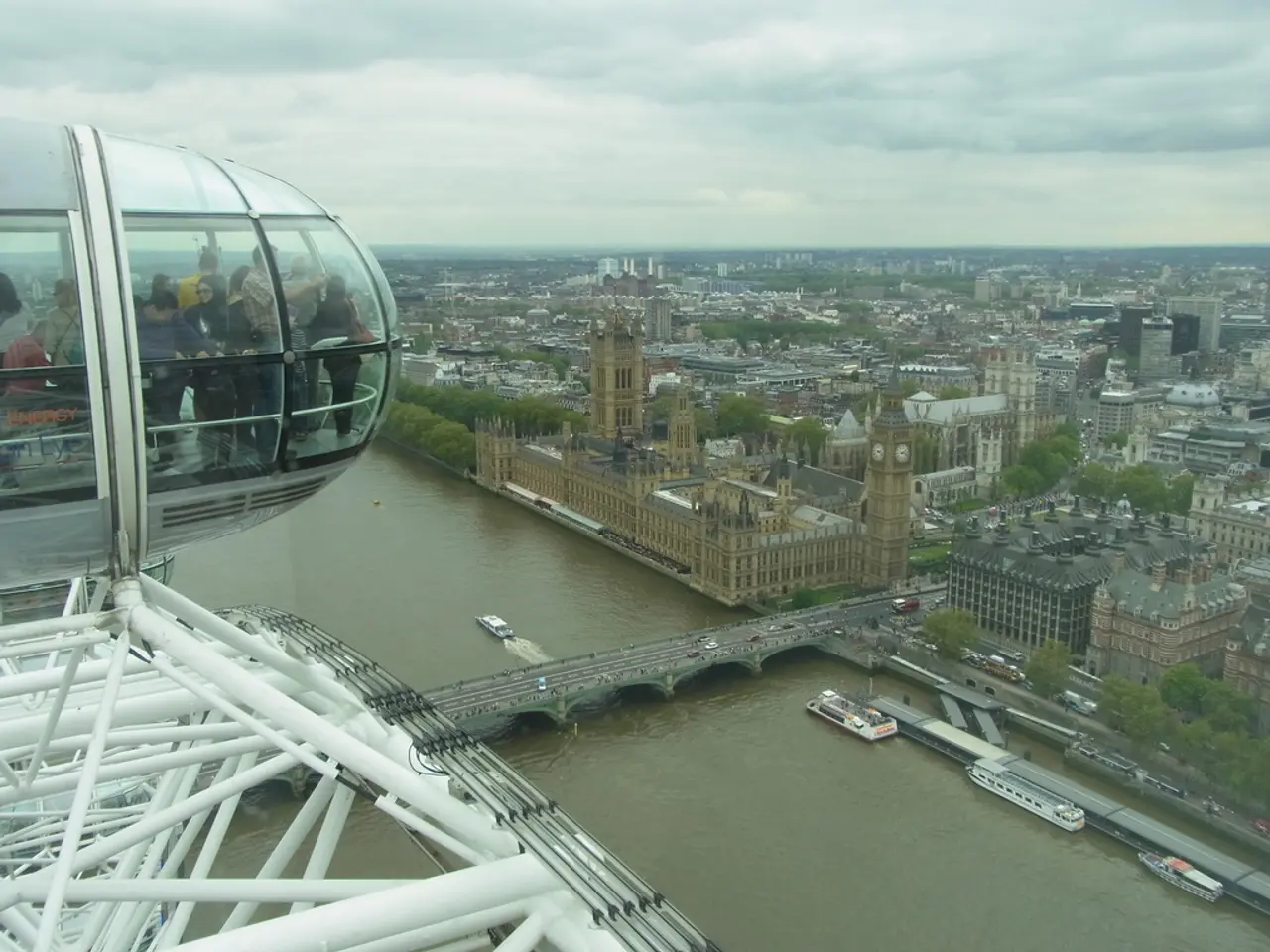Imminent Fall in UK House Prices: Four Key Factors to Consider
The UK housing market, which has remained buoyant since the early 1990s, faces a potential crash scenario in 2022 due to a combination of factors affecting affordability and demand.
Firstly, the weak economy, with signs of economic stagnation or even recession, is reducing people's ability to afford homes. This decreased demand is a significant pressure on house prices [1].
Secondly, the exit of small landlords and second-home owners from the market is a key concern. Increased taxes, such as higher stamp duty, regulations, and reduced tax advantages, are pushing these property owners to sell, thereby increasing market supply and putting downward pressure on prices [1][3].
The rising taxes and levies are another factor dampening demand. Increases in council tax, the restoration of stamp duty payments, and higher energy and water bills are reducing affordability for many [1][2].
Moreover, the UK's looming fiscal crisis and high bond yields could force the Bank of England to raise interest rates. Historically, such a move negatively impacts mortgage affordability and house prices [1][2].
Additional context suggests that wage growth, wealthy buyers, institutional investment, and potential interest rate cuts may cushion the impact. However, these factors are uncertain, and the overall pressures suggest a downside risk to prices [1].
The rental sector is also affected, as small landlords leave due to tax changes while large institutional investors fill some gaps. However, the new rental supply is still insufficient to meet rising demand, impacting the broader housing market ecosystem [3].
In 2022, house prices rose by around 14% but have since slowed dramatically. The average house price fell by 1.2% in July 2022, according to figures from Rightmove, marking the largest summer fall in 20 years [2][4].
Even in London, the fall was more significant at 1.5% in July 2022. Landlords are quitting the property market due to big increases in tax and extended renters' rights, adding a huge amount of extra supply to the property market [3].
The government has made it clear that it does not approve of people owning more than one home, and councils are imposing extra taxes on second homes, with many facing double or triple the usual rate [3].
In conclusion, the interplay of weakening economic conditions, affordability pressures from rising taxes and costs, a shift in landlord behavior, and potentially rising interest rates are key drivers threatening UK house prices with a crash scenario in 2022 [1][2][3].
References:
[1] BBC News. (2022). UK house prices: Why are they falling? [online] Available at: https://www.bbc.co.uk/news/business-62526027
[2] The Guardian. (2022). UK house prices fall for first time in six months as market slows, Rightmove says [online] Available at: https://www.theguardian.com/business/2022/jul/05/uk-house-prices-fall-for-first-time-in-six-months-as-market-slows-rightmove-says
[3] The Telegraph. (2022). Landlords are quitting the market in droves as tax changes and regulations bite [online] Available at: https://www.telegraph.co.uk/property/propertynews/10204184/Landlords-are-quitting-the-market-in-droves-as-tax-changes-and-regulations-bite.html
[4] Rightmove. (2022). UK house price index [online] Available at: https://www.rightmove.co.uk/news/property-news/articles/uk-house-price-index/
- The potential for increased interest rates due to the UK's fiscal crisis and high bond yields could affect personal finance by making it more challenging for individuals to afford mortgages, which may impact house prices negatively.
- In the realm of personal finance, the decrease in demand for properties and the increase in taxes and levies, such as higher stamp duty, council tax, and energy bills, are making it difficult for people to afford homes, which could have repercussions for the real-estate market.
- Newsletters discussing personal finance might highlight the impact of the exit of small landlords and second-home owners from the property market, due to increased taxes and regulations, on the affordability and demand in the housing market.
- As investors, one should be mindful of the potential downside risk to house prices in the UK, given the factors such as weak economy, increased taxes, and potentially rising interest rates, which could affect personal-finance decisions related to investing in real-estate.




